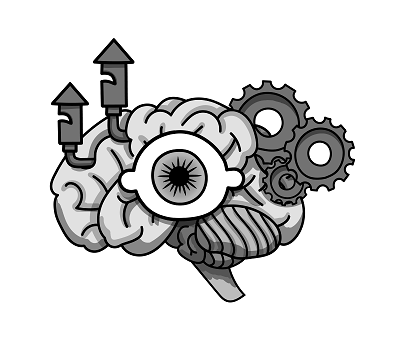I hate religion. I hate ““spirituality”” (what does that even mean?). It makes my skin crawl. I hate that people willfully delude themselves into believing things that they clearly know to not be true, on some level, and then argue wholeheartedly for their actual truthfulness. It’s the most nonsensical practice I can imagine someone engaging in and I struggle to see people who do so as willful, rational human beings. How could they be? Just look at all the people in this thread searching for one that "speaks to them as if they can just pick the nature of reality out for themselves. How in the world can people do that and not make themselves crazy with cognitive dissonance?
BUT. What I do understand is that people are searching for structure, community and a sense of reverence towards… something. There have been attempts at replicating that experience sans-nonsense, really just worshiping the world itself, the universe, things that are objectively real, but every time it’s tried it’s mostly ridiculed and laughed at by the sort of jackass atheists who can’t even empathize with that longing. It’s sad.
spirituality, as i understand it, tends to be more mindful/spiritual practices minus any typically associated religious aspects. for example, meditating and yoga would be typical examples of this, but i think spirituality can also be watching the sun rise/set, going for a walk in the woods, or taking a hot bath. anything that can help bring you to a more peaceful place of self reflection and introspection could be considered spiritual in my opinion.
how can you say that you hate that while not even knowing what it is?
I do all of those things. I choose not to call them spiritual because to a lot of people, spirituality implies a belief in the supernatural, spirits, some nonsense about vibrations, etc.
What you’re describing is just self-care and self-administrated mental health practices.i don’t really think you get to label others’ experiences ;) imo these experiences tend to feel different to me- more checking in with my physical, mental, and emotional health, as well as feeling connected to the earth and environment around me. that’s what makes them spiritual to me personally- they just feel like more than a regular walk in the woods or hot bath. it’s like i’m connecting with something deeper inside myself and in the world itself.
Well, yes, they’re certainly more than a regular walk in the woods or a bath, which is why I said self-administered mental health practices. Meditation be like that. Still no spirits involved, which is what the word spiritual implies.
i feel like the spirit involved is my own, hence why i would consider it spirituality. but it doesn’t look like this is going anywhere though, so i hope you have a lovely day :)
I’m very curious to hear about the attempts you’re referencing in your second paragraph!
Sorry I didn’t get to this comment earlier!
The broadest answers to that question are Humanism and Scientific Pantheism, which I’m partial to. That’s what a lot of atheists have made a whole lot of fun of.
Of course humanism is still sort of opposed to what I’m talking about in thr second paragraph, or at least most humanists would be, as far as I’m aware. And most “earth religions” fall under some form of what I’d call spirituality.
In the U.S., at least, I’ve started attending my very local Unitarian Universalist church and I think they’re your best actual practical bet. As much as I whine about most religion, I deeply respect the UU’s commitment to include everyone, atheists included, and so I do my best to respect what people believe and what they want to talk about (which naturally doesn’t usually involve trying to convert people). Third spaces are too important to keep people out because of some sense of sectarianism.
And, of course, Buddhism is at it’s heart a very skeptical religion to the point that some interpret more as a philosophy, which is how I choose to see it, and it’s a philosophy and a practice that modern psychology owes a whole lot to (and should probably yank even more from). It’s literally just a framework of how to stop “suffering” and live a good life regardless of whether it seems like a good life externally. I do mostly stick to more secularized, almost new-age interpretations of it, I love the blog Deconstructing Yourself for being thoroughly dedicated to “Nondualism” while rejecting the schizo craziness it usually brings with it. But I like to learn from something closer to primary sources, too…
For which I’m relying on the Buddhist University. Of the two “original” explicitly supernatural elements of Buddhism, reincarnation was an assumption of the culture the Buddha was born into, and with that stripped away, Karma as cause and effect is just determinism without any “you’re screwed because your past self screwed up”. The second chapter of What the Buddha Taught (which is a great book) practically made me a Buddhist by illuminating just how dedicated the Buddha was to making sure people actually remained skeptical of him, only searching for what they could personally prove not really caring whether something was his idea or anyone else’s. This is a quote (supposedly from him, not that it matters) that sums it up:
Yes, Kālāmas, it is proper that you have doubt, that you have perplexity, for a doubt has arisen in a matter which is doubtful. Now, look you Kālāmas, do not be led by reports, or tradition, or hearsay. Be not led by the authority of religious texts, nor by mere logic or inference, nor by considering appearances, nor the delight in speculative opinions, nor by seeming possibilities, nor by the idea: “this is our teacher”. But, O Kālāmas, when you know for yourselves that certain things are unwholesome, and wrong, and bad, then give them up… And when you know for yourselves that certain things are wholesome and good, then accept them and follow them.
There’s also a story about him telling off one of his followers for insisting that he reveal the “mysteries of the universe”. He was pretty much like look, you’re being a dumbass, that’s won’t help you live well, that’s not important." I can respect that.
I used to be a pretty staunch atheist, but had an experience earlier in life that changed my perception. I spent months trying to find a scientific explanation for what I experienced, something within the realm of physics for it to make sense, but could not. Even today I try to debunk my own experience but I know that it happened and have somebody else who can confirm it as well. I can’t ignore that evidence, but I also have no way to prove it to others so I make no effort to “convert” anybody to my way of thinking. Simply explain what happened and if you believe me cool, if not, also cool. We all have our own views.
I don’t know the nature of the universe, I do know that we don’t know a whole lot about the universe though. To me, the atheists that claim with certainty that there is nothing beyond the veil of our reality sound just as ignorant and stubborn as the orthodox priests of any major religion though. As a science minded person, you should always try to keep an open mind.
Today I would describe myself as a scientific pantheist, I guess, if we have to put labels on things. Which is to say that I believe that what we see as the universe is synonymous with what we think of as God. That science, mathematics, physics, etc are the languages in which “God” speaks to us.
I’m apatheistic when it comes to if there is a god and/or gods and I actively dislike all organised religion. Religion has no place in modern society and causes so much suffering. It’s time has been and gone.
Absolutely not. Raised in a strictly Catholic household and 12 years of Catholic education but a) none of the religious education sank in* and b) my personal experience turned me off to religion-as-an-institution entirely.
Footnote*: Religion class was typically my worst grade in school, except for 8th grade where the teacher gave me an A despite low scores on most of the tests. When I asked her why she thought I deserved an A, she said that she gave grades based on our ability to grasp the material and she thought I was doing as well as I could. I cried – not because this meant I was doing well, but because I was given something I knew I didn’t earn and I didn’t even want an A in a subject I fundamentally disagreed with.
I was born and raised Roman Catholic and attended Catholic schools up to college. I feel very disconnected from the religion because of how it upholds discriminatory views against gender minorities. There was also a lot of fear instilled in me when I was younger and I just grew out of it eventually. It didn’t make sense that I would do good just because a higher being promised salvation when I die. There well also too many hypocrites around me who would go to church religiously but never practice the teachings from the priest.
I now try to make sense of life as I see it and I still practice spirituality through Tarot. It’s brought me a lot of peace but I still struggle every now and then
Not at all. First of all… Religion isn’t a huge thing in my country - or at least not in the area I grew up in - so we never went to church or anything (although my parents went through the motions with the baptisms and such). I did get some catechism and stuff like that, but it was like… “more school”.
Later on, religion just never clicked. I was into mythology, so I always got stuck at “Why would THIS god be real and not all of those? They were there before.”
Yes, kind of. However, I was raised Pentecostal and strictly conservative, and have lingering religious trauma that I’m working through. For a while (from my teens through my mid-twenties) I described myself as atheist. However, I got into witchcraft and the occult a few years ago as kind of a time-waster hobby, not really sincerely believing in it at first but just having fun with it, and that grew into learning about other religions and becoming genuinely curious about spirituality and religion. Now I’d describe myself as a Unitarian Universalist. I’ve still never been to a Unitarian Universalist church in-person because there’s not one near me, but I attend online stuff occasionally and whole-heartedly love the way they do religion. And I feel welcomed there despite all of the things that would have gotten me dirty looks at any of the churches I grew up in. In terms of belief, I’d say I’m agnostic and I like to “put on” and “take off” beliefs (or “suspend disbelief”), which I got from doing chaos magic. I think magic and ritual helps me organize and make sense of my mind more than anything else… if anything, just having a meditation and journaling habit has helped my mental health, especially since i re-started those habits after starting my gender transition. And yeah, it also maybe helps with everything else gestures to the world at large…
And yeah, I just realized this is the most I’ve talked about my spirituality to anyone since going down this road. One of my big things is that my spirituality is a very personal thing and I keep it mostly to myself. Nothing against people who proselytize (I’ve come to understand and forgive people who sincerely believe they’re saving my life by “ministering” to me, like some of my older relatives who genuinely care about me and who are probably happy to hear me say “yeah, I’m kind of getting into a church now”) but I don’t feel compelled to tell people about my shit because I definitely have no answers. That’s my whole thing, I have no answers. I’m just kind of reading everything and trying everything, for no purpose other than to just understand people and myself a little better. And maybe it works for me, but I also know folks who definitely don’t want or need religion and that is 1000% okay, and I hope I don’t disturb them. So I only really speak of my stuff when people ask.
I am, very much, not religious. My father is Catholic, my mother doesn’t go into her spirituality but it’s not Christian. So I was taught about different things and given the choice to believe in what makes sense to me. If there’s one way to describe what feels to me like what I imagine faith to be like to someone who’s religious it would be the messages of hope and of passion for discovery and learning that Carl Sagan showed. The Pale Blue Dot speech is a sermon. It inspires me to be a better person and to try and be the change in the world that I want to see. But ultimately science doesn’t know everything and at some point even with it you must make assumptions and have “faith” in the process.
As far as divinity goes, I’ve always struggled to believe. I just don’t see the extraordinary evidence that would be required for me to say “Oh, that makes a divinity-free universe impossible”. And by the same token it is impossible to prove that the universe was not crafted by some all powerful being last Thursday with all our billions of years of history baked in for us to pour through. So I figure, I’ll find out on my last day and until then I’ll just focus on being as good a person as I can be.
It’s complicated. I am not religious, and have considered myself to be an atheist for most of my life so far. I also have strong negative feelings towards most mainstream religions, because of their long-standing hate towards people like me and my loved ones. I also grew up in a Presbyterian church and honestly, fuck everything about calvinist-derived theology.
But, it is hard to shake some amount of magical thinking. And honestly, if it brings joy, and isn’t harming people around you, why not? So lately I’ve been leaning into it a bit, in a vaguely neopagan direction. I definitely don’t take any of it literally, but if a sprinkle of it helps keep me from descending into despondency, I will shrug and go with it. It isn’t rational, but I am a human, not a robot.
I have also considered finding a local unitarian universalist church or something along those lines. Somewhere that is chill with me as I am. The last few years have been isolating and I think I need more community in my life to thrive.
Not really.
I like witchy stuff but only if its considerable to placebos. A rose quartz bracelet, for example, might not be scientifically going to attract love and good fortune—but its cute and makes me happy, so who knows, THAT might help.
If I had to choose a religion though, I’d probably go with one of those polytheist religions because ever since I was a kid and first went to a church camp, I decided that a singular “God” scares the shit out of me. I basically considered “God” too overpowered and decided that wasn’t for me.
deleted by creator
No, I’m too gay lmao.
My “spirituality” is more just driven by my experiences with living, psychedelics, art, and science. Which is to say, I see myself as the atoms which comprise me, which will and actively are becoming other lifeforms (and viruses/prions) when my homeostasis is thrown off hard enough (cell death and the big death). I feel less like a “person” and more like a meat computer. Could be because I’m autistic and dissociate a lot from trauma/undiagnosed ADHD, but like, I do like the feeling of just “existing”. I feel like one of countless experiences of the universe experiencing itself. I try to do what makes me happy, (art, gardening, video games, programming) which includes helping my community and surroundings to be healthy, happy, and free, as one person can manage to make it.
I can’t always meet my own standards because I’m only one person. I still try to strive to do what I can.
Is anarchism a religion? Or is it faith in the inherent interconnectedness of nature? I think all creatures are better than we (human society) give them credit for. I don’t feel anthropocentrism will get us anywhere. I believe we’re more than the systems that control us (capitalist megamachine, fascism, racism, sexism, colonialism, ableism, speciesism, etc.). We, creatures of the earth, are no better or worse than anything or anyone else. And these specific bodies make us able to discuss and address inequality and injustice, and try to get as close to planetwide systemic homeostasis as possible. You are me are nature are gods are the universe. We’ll meet again in a different context, as different creatures, as not quite the same set of atoms. But some of what comprises “us” (myself and anyone reading this) will be there, in the future, perhaps even in the same creature. I don’t think there’s an “afterlife” just a different ongoing thread of “life”. I’m still terrified of dying of course, I’d like to keep this “system”, this “body”, alive as long as possible. But I’m a bit more ok with it than I used to be. And mourning my own death after being zooted out of my mind helped a bit.
TLDR “Ego deathTM” to sound even more like a stereotypical stoner/psychedelics user lmao.
Yep! I grew up nominally christian but actually pretty personally areligious, even with a long atheist phase, but in a pretty diverse religious upbringing both family and community-wise - mostly a mix of Unitarian Univeralism, Catholicism, and Judaism. I had a lot of anger at religion as a queer teenager from the US south but thankfully ended up falling in with more positive ex-Christian interfaith groups and not the antitheist community, which led to a lot of open exploring down many different religious paths just to better understand and see what the fuss was all about, to where I am now, an animist polytheist with a pretty solitary practice. No pressure, just me and my own relationship with the world and the many kinds of persons, human and not, who inhabit it.
I am atheist but I do enjoy religious spaces. There’s a stillness that I like, gives you the opportunity to just be in the moment. You don’t get many spaces like that for atheist folk (libraries are the closest I can think of). I sing a lot of choral music so often find myself in churches. I like the structure of a service and the ceremonial aspect, I just don’t believe in the content itself.
definitely relate to this. i attend church regularly despite not being religious because my family is, and though i don’t believe in the christian god at least, i do appreciate and like the environment, community, and lessons being taught. it’s very peaceful and makes you feel like you’re part of something a bit bigger, even if that’s likely just because there’s a few hundred people at any given service.
Hell yeah! I’m Hindu and I love it.
I loved mythology as a child and devoured every myth from every culture I could get my hands on. Later this evolved into exploration of religion. I’ve read religious books of many religions - Hindu epics and scriptures, Buddhist scriptures, Jain scriptures, Quran, Bible, Guru Granth Sahib, and the Avesta - I enjoyed them all, and my parents encouraged this exploration.
I ultimately came back to Hinduism because a lot of the stuff in it made sense and resonated with me, and let me adopt a mindset that works well for letting me process and ascribe meaning to the various experiences and phenomenon of life.
Hinduism is a collection of hundreds of belief-systems - a lot of which are uber chill, some literally cult-like, some polticised and weaponised for oppression, and some that are intense but harmless. You can choose what makes sense to you - I personally follow a pretty chill belief system, but it also makes me seem not serious about it.
Oooh and it is fun in the community - festivals, temples, ceremonies, and various cultural events -there are so many of these, and each of them very fun depending on the people involved in the celebration.
See, this is what I legitimately can’t comprehend about religion, you yourself call it mythology. Being a member of a religion requires that you essentially pretend that you’re convinced of this stuff. I can’t comprehend someone literally shopping around and picking how they’re going to view… reality. It’s just reality. It doesn’t work like that.
Hmm, I think “pretend you’re convinced of this stuff” is a long-winded way to say “believe” - belief is an inherent, basic feeling in humans - you believe your loved ones when they say they love you, you believe someone when they ask you to trust you, you believe someone when they claim something about themselves, your dog believes you will come back even though you have disappeared suddenly when you go to work, people believe love to be more than a chemical reaction inside your brain - all of these things happen without you knowing 100% sure what the exact situation is, without you knowing a numerical value for all the stats, or what will exactly happen. Sure, you could base your thinking around probabilities based only on what you have observed or simply just believe things. I think belief is one of the things that seperates setience from plain sapience.
It’s probably best to seperate a fanatic from a general religious person - I use religion to frame and try make sense of things that I can’t know by pure observation or those that don’t have a straightforward answer - what happens after death, what is purpose, why is there suffering, etc. - in an attempt to look for something other than “it’s all meaningless, everyone and everything happened by pure chance”, plus there are a lot of philosophies and stories that make for good thought experiments.
I can’t comprehend someone literally shopping around and picking how they’re going to view… reality. It’s just reality
It’s also probably best to shed the narrow “Religion = mindless god worship” view - people are complex, as are cultures. Not all religions push aggressively for blind faith and discarding of logic in face of reality (many do, yes, and I’m sure that has shaped your view on religion). In a way, you can think of religion to be positive nihilism for many - ascribing meaning to the meaningless or unexplained.
just a heads up, i’m not sure if the person you’re replying to seems very… interested in a genuine discussion. i’m another comment in this thread they said:
I hate that people willfully delude themselves into believing things that they clearly know to not be true, on some level, and then argue wholeheartedly for their actual truthfulness. It’s the most nonsensical practice I can imagine someone engaging in and I struggle to see people who do so as willful, rational human beings.
which doesn’t exactly seem super open minded imo. but, for the record, i really like how you’ve explained yourself here- as someone who is curious about religion and spirituality but hasn’t found anything to specifically believe in, it’s really nice to see how others reconcile things like “shopping” for a view of the world.
do you think you could elaborate a bit on why you settled into hinduism specifically? i’m not very educated on it, but love hearing others experiences and beliefs :)
Aw that’s a bummer. But based on their full comment, they don’t seem narrow-minded about it just a bit… frustrated? Oh well I can empathise.
Haha thanks for liking it - I’m grateful I got a chance to explore without people being down my throat about it.
Regarding my choice for Hinduism - I guess it all started when I wondered about what happened after death. I grew out of the idea of eternal heaven or hell pretty quickly - started to dislike it a lot, infact - because eternity of consequences for a jiffy of a lifetime seemed too inflexible - so this eliminated the Abrahamic religions, Zoroastrianism, and some ideologies of Hinduism that believed in eternal heaven/hell.
I really liked the concept of reincarnation and karma. It made sense to me. You live a life, and the circumstances and options of your next life are decided based on the deeds of that life - you repeat this cycle until you feel like your soul has experienced all it needs to, and break out of the cycle, complete and one with the world. So the options left were Greek/Roman, Hinduism, Buddhism, Jainism, and Sikh.
I didn’t like the Greek gods they seemed more like mortals with power than divine beings. I dropped Sikhism bc it’s monotheistic and I like the idea of multiple gods for everything. Following Jainism sincerely was a bit too extreme for me.
There were other factors like the way each religion described morality, mortal priorities, and ideal way to lead life - I liked some and disliked some, but I mostly avoided religions that were too rigid and inflexible on how daily life was supposed to be lived.
Ultimately, It ended up between Hinduism and Buddhism. I picked Hinduism because of its scriptures - Gita, Mahabharata, and the Upanishads - there’s a looot more but these influenced me a lot. And also because of the flexibility it offered - I could pick a belief system, or make up my own belief system as long as it was in line with the core beliefs of Hinduism, and you could philosophize enough to justify your beliefs (There’s even a school of thought, that believes in the gods but actively chooses to ignore them lol, and it is considered a valid Hindu ideology).
While I identify as Hindu, I haven’t picked a definite school of thought to follow - am currently following a blend of different schools of thought interweaved with my own logic, and haven’t yet solidified my beliefs - I still have a lot of reading left to do.
Ahh, I think I rambled a bit too long, thanks for hearing me out :)
If you’re interested, the short story The Egg by Andy Weir is a fun read - it is by no means a descriptor for any Hindu beliefs, but the concepts and vibes of reincarnation and one-ness of everyone/everything are pretty similar.
thanks for sharing your experience :) i’ve been vaguely interested in pursuing investigation into a religion or belief system for a couple years now, but it can be difficult to find a place to start with a lot of them. there’s so much out there to learn about so many, i think i’ve just gotten a bit paralyzed and ended up ignoring the part of me that really is interested in learning more about different religions.
The ones you’ve listed (Buddhism, Sikhism, Jainism, Hinduism, and Greek/Roman) are all actually ones i’ve been particularly interested in, but another hurdle i’ve had for most of them is the language barrier. there’s just a LOT of new terms and names to learn and remember- did you find that you had a similar experience just starting out? was just more exposure and reading what helped get over that little hump?
No problem, thanks for hearing me out - It’s the first time I’ve been asked about it on the net and it was a fun thing to write.
Ahhh I really understand your difficulty and hesitance - there’s so much confusion on where to start and how to read, and also so many translations butcher the work and frame everything in a western perspective. I had a similar experience, yeah.
I have a suggestion that sounds silly but I think is very helpful for this: Start with kids books. Pick up a religious book for kids that tells the stories and the teachings - they highlight the main events, and convey the themes and intents of that religion in a simple, easy-to-digest manner. Then read a book for young adults - they lay out the deeper parts of the religion, and grislier parts of the myths and teachings. After doing that, you become familiar with the names and places and stories, and reading the big books with all the depth of that religion becomes a tad easier. Also, you learn how much fanaticism is present in the religion from the subtext.
Oooh and I recommend listening to the lectures by some of the gurus and religious teachers online - there’s loads of them, and some are crap, so just filter them out as soon as you hear something stupid or sexist or any other crap. Religious books are a big chore sometimes, while these lectures are usually pretty easy-to-digest, and tell you a lot about the currently held beliefs of a particular religion.
After that, I think it’s just something that becomes easier as you read more of it. It does become a bore time to time, and for Buddhism, Jainism, and Hinduism, you’ll have to read works by different authors if you want to get some actual info, as there are so many versions of a scripture and so many translations of it.
thanks for the advice- the part about reading kids books is actually genius, i would’ve never thought of it! i’ll definitely look into trying my hands on some, i think that’d really help with just laying down the groundwork of understanding the religion as a whole. on the upside though of having so much content to get through, at least there’ll always be more to learn!
thanks again for the advice!
I grew up in a christian household. My larents even went to two seperat churches (one service on saturday, one of sunday). They were very uptight about what was acceptable and what was evil. For example pokemon, star wars, yu-gi-oh, dragonball and harry potter were all forbidden for me. In my teens i became an atheist and never went back. Even though i do not believe in anything super natural anymore, i came to enjoy talking about religion with people again eventually.












